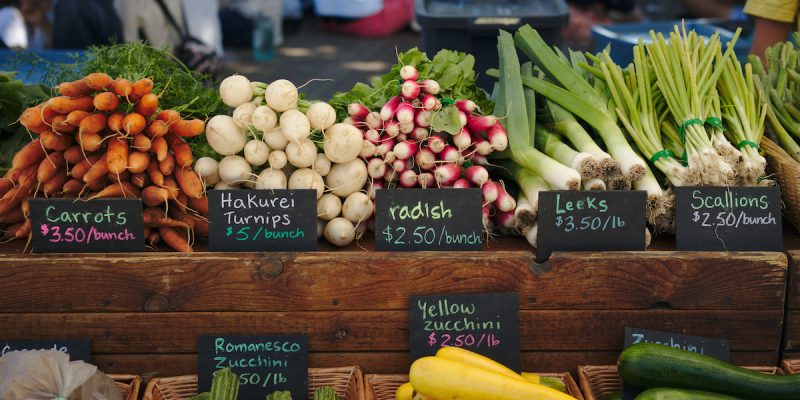The importance of our farmers in BC
Trust that our agriculture/aquaculture farmers are protecting themselves, and society, as they continue to produce food daily
Too often we take for granted the essential workers in agriculture and the farmers growing our food, now more than ever our eyes are turned towards these unseen people. We do not have to wonder how important they are, with every meal we consume, as we are in isolation, we give thanks for their existence. Even as people stock up on their toilet paper, they must wonder…and, hopefully, give thanks to the farmers for the opportunity to use that paper, right?
Over the last few decades we have slowly devalued farmers or have taken them for granted, yet today more than ever it is impossible to think of anything else but the importance of farmers. These wonderful individuals are the ones keeping our societies from tipping over the edge.
“Feeding the planet isn’t simplistic or base, it’s multifaceted, complex and sophisticated. Farmers are the original experimenters, hackers, makers and problem-solvers; they’re biologists, chemists, engineers, entrepreneurs and inventors.” – Farming is the world’s most important career.
But above all this, they are the hands that feed us. The very fact that thousands of people across British Columbia are getting up and making their way to work to produce and distribute our food is what is keeping us from mass hysteria.
Should I even bother adding this bit? Stay home if you are not an essential worker, allow our essential workers to have more space between them as they travel back and forth to work.
For now, don’t overstock food and toilet paper, do not add to the mass meltdown simmering at the edges of our collective consciousness. Instead, give food producers (and toilet paper manufacturers) the chance to produce in a timely manner. As we attempt to flatten the curve of this virus, we must absolutely do away with the act of hoarding too.
Trust that our farmers are protecting themselves, and our society, as they continue to produce food daily. Trust that they are the ones keeping us alive and healthy. Trust that the grocery stores are doing the best job imaginable in these times. Protect these people in order to protect our loved ones.
If you are wondering about Canadian grown food and distribution, then look to what our farmers are farming in British Columbia:
A variety of berries are grown commercially right here in B.C., including: blueberries, blackberries, cranberries, raspberries and strawberries.
Farmers grow all kinds of field vegetables in British Columbia, thanks to a moderate climate, fertile soils and access to good water. Crops produced in relatively large volumes include potatoes, sweet corn, cole crops (such as broccoli, Brussels sprouts and cabbage), beans, cucurbits (such as pumpkins, squash and zucchini), lettuce, carrots and peas. Other crops include asparagus, beets, Chinese vegetables, onions, radishes, rutabaga and spinach.
Grain and oilseed crops have been an economic mainstay of the Peace River region since the early 1900s. There are approximately 1,000 B.C. producers in this sector, 250 of which are in the B.C. Peace region.
Greenhouse vegetable crops produced in British Columbia include cucumbers, eggplant, lettuce, peppers and tomatoes.
British Columbia is the second largest mushroom producing province in Canada, after Ontario. The main crops are different sizes of white-and-brown coloured strains of Agaricus button mushroom.
The tree fruit industry in B.C. has about 400 commercial growers who farm approximately 15,000 acres of apples, pears, cherries, peaches, nectarines, apricots and plums.
The BC Chicken Growers Association (BCCGA) is the industry group representing BC chicken farmers, advocating on behalf of the 325 licensed chicken growers in BC.
The BC Salmon Farmers Association represents 70 businesses and organizations throughout the value chain of finfish aquaculture in BC. They are producing farm fresh salmon in abundance.
BC Shellfish farmers, produce the main species of shellfish that are farmed commercially in Canada – clams, geoducks, mussels, oysters and scallops.
BC’s dairy producers represent the third largest dairy-producing province in Canada. With an average herd-size of 135 animals per farm, the industry is primarily operated by multi-generational family farmers.
Last but not least, bakeries are still baking breads, food is still crossing the borders back and forth, and most food supply chains are unbroken.
Bottom line…let’s all be responsible by not wiping the shelves clean-out-of essential foods that are in steady supply. Shop responsibly and aim for more local products to shorten the chain of travel.
And the bottom’s bottom line…

Kruger Products L.P. is Canada’s leading tissue product manufacturer. Their parent company, Kruger Inc., also manufacturers a large number of industrial products. With 37% of the total tissue manufacturing capacity in Canada, they are Canada’s #1 leading tissue manufacturer. They offer many extremely well known brands, such as Cashmere toilet paper, Scotties tissues, and Sponge Towels paper towels.

